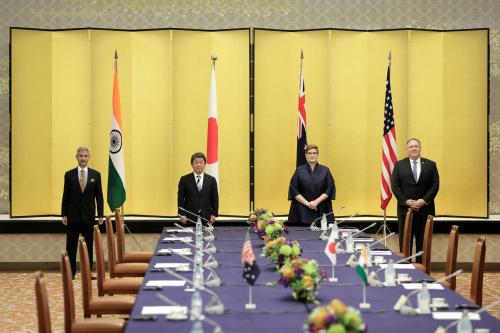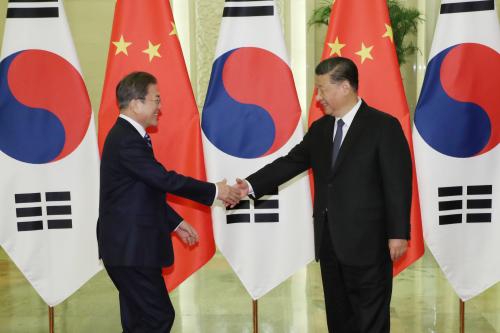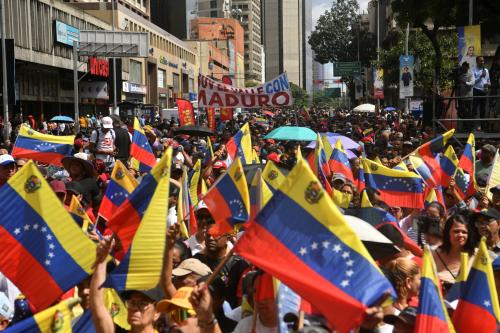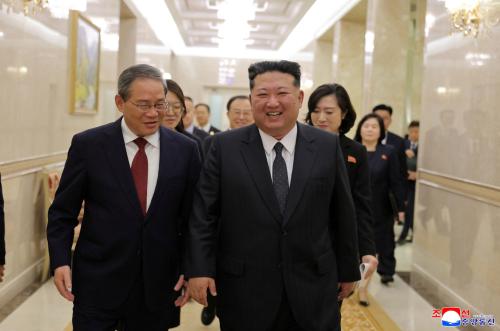An earlier version of this paper was presented at the 9th Brookings-Korea Research Institute for National Strategy (KRINS) joint conference, “U.S. policy toward East Asia and a proactive strategy for the future of ROK-U.S. Alliance,” held virtually on February 17, 2021.
Executive Summary
North Korea is in trouble. The COVID-19 pandemic, self-imposed isolation and lockdowns, crop failures, sanctions, and more have put the economy in a parlous state, a fact acknowledged by Kim Jong Un himself. The state planning mechanism seems broken, foreign exchange holdings are down, state revenue is shrinking, foreign trade numbers have collapsed, and growth is declining. The measures taken thus far by the regime to deal with the crisis seem unlikely to turn things around. Indeed, they may make matters worse, especially if Pyongyang follows through on plans to divert scarce resources to expand its nuclear weapons and missile programs.
Despite its difficulties, don’t count Pyongyang out. For decades, the North Korean regime has demonstrated remarkable determination, diplomatic dexterity, and uncanny survival skills. And the DPRK has the support of China, which is prepared to live with Pyongyang’s nuclear status and committed to keeping the regime on “life support.” North Korea is down, but hardly out.
In the midst of this economic crisis, Kim Jong Un is gambling that expanding his nuclear and missile arsenals will convince the United States to engage in “arms control talks” that would tacitly accept the DPRK as a nuclear power and give Pyongyang the sanctions relief it needs.
But North Korea’s economic crisis represents a major vulnerability for Pyongyang. It presents an opportunity to apply overwhelming pressure on the regime across a broad front and convince Kim Jong Un that his pursuit of nuclear weapons could end his regime. Previous efforts to do so were half-hearted and failed to change Kim’s calculus. The current crisis may be the last opportunity to try.
Today, prospects for North Korea’s denuclearization are all but gone. But that goal may still be achievable if the United States, its allies, and partners recognize that Kim Jong Un and his regime are standing on shaky ground, and that now is the time to convince Kim that the trembling he feels is a sign that the regime’s days could be numbered.
The Brookings Institution is committed to quality, independence, and impact.
We are supported by a diverse array of funders. In line with our values and policies, each Brookings publication represents the sole views of its author(s).







